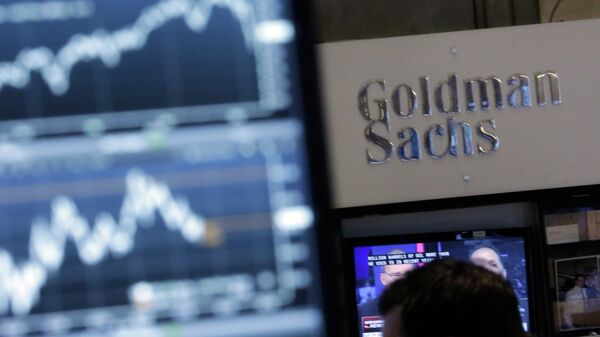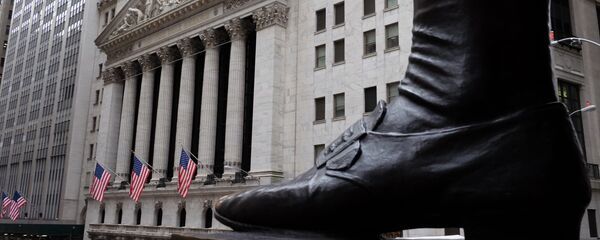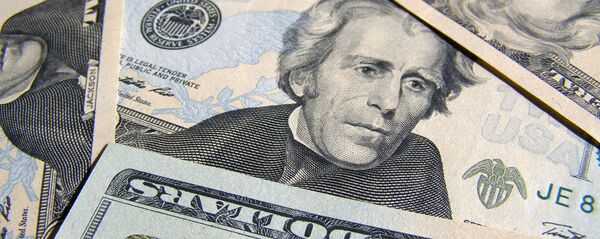Kristian Rouz — US corporate earnings are projected to shrink further in Q1 after a lackluster performance in second half of 2015 as the Federal Reserve's tightening policies and a stronger dollar have negatively affected overseas revenues of America's enterprises. This time, major US financial institutions are in focus: as earnings season nears, US banks are expecting a massive decline in revenues from deals, including trading, investment and international lending.
Should Q1 turn out more frustration for corporate America, the period would be a third consecutive quarter of losses in profits, meaning the overall US economy is nearing an 80% chance of tumbling into a recession this year (two straight quarters of corporate losses historically precede a recession).
In Q1 2015, Goldman's investment banking revenues hit $1.9 bln, whilst this outgoing quarter they would hardly reach $1.4 bln.
The projected slump in financial sector earnings stems from the volatility in international finance, with most investors saving their money, abstaining from investment. Trading in financial services is going through hard times: once investors put their money into a haven asset, they do not require further guidance anytime soon.
"We have to take our direction from what other firms have said and what we have been able to observe in the marketplace," Guy Moszkowski of the London-based Autonomous Research LLP. said. "The market environment is what it is, and it's not good."
The wave of anxiety in high-yield bonds in December, global stocks meltdown in January, the lingering drag on commodities throughout most of the quarter and loose monetary policies have all contributed to the declining appeal of financial sector operations: market participants are losing trust in larger financial institutions and their ability to safeguard their money.
Besides, historically, US financials perform their best in the first quarter of the year, meaning should this quarter sport a massive decline, there is more trouble down the road.
"Clearly, the external environment has been a real challenge," Jonathan Pruzan of Morgan Stanley said.
Tough competition between US financials is another reason for decline in operational income amidst the unfavourable market conditions. Citigroup said on March 8 their investment banking income would plunge 25% in Q1, while trading revenues would decline 15%. JPMorgan's investment division is expecting a 25% decline in fee income as debt servicing and share insurance have both slowed. Jeffries Group reported a major collapse in trading revenues, with their income from stock and bond markets having shrunk by 82% in December to February period, the greatest decline since 2008.
Between 2009 and late 2015, equities of US banks rose in value by a total $14 trln, however, each time the Federal Reserve protracts on interest rate hikes, thus preventing investors from hurriedly buying into the dollar and other US assets, bank stocks plunge.
In past 52 weeks, bank shares declined by 22% in Wall Street trading, whilst insurers' stocks dropped 13%, capital markets' shares plummeted 27%, and consumer-related segment crashed 28%. The erasure of capital linked to the US financial enterprises might trigger cuts in costs and other similar measures aimed at boosting corporate efficiency, however, the main factor of the current unease, global volatility, is unlikely to disappear anytime soon.
Consequently, the ongoing drag on US corporate earnings is likely to push the broader economy into a recession as soon as this year, unless an acceleration in real economy and domestic consumption prove solid enough, supporting at least domestic operations of US banks.





